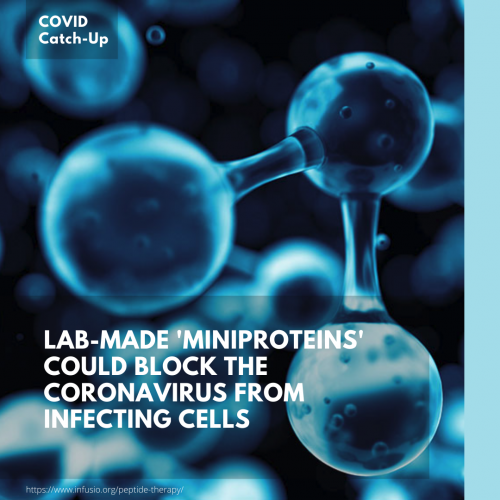Graphic by Annie Lin.
Although many experimental therapies for COVID-19 rely on leveraging the body’s own immune cells and proteins, a new approach may be able to offer them some outside help.
Led by Dr. David Baker, a team at the University of Washington has designed synthetic proteins capable of blocking the coronavirus from binding to and infiltrating human cells. Because these tiny, lab-grown peptides are much smaller than the monoclonal antibodies used in treatments pioneered by Regeneron and Eli Lilly, they could potentially be mass-produced at relatively low cost—a major advantage as companies rush to create widely accessible therapeutics.
Unfortunately, you likely won’t see Baker’s “mini proteins” on the market for a while. So far, their ability to protect against SARS-CoV-2 infection has only been demonstrated in monkey cells, and the researchers will still have to run many clinical trials before securing FDA approval for commercial distribution. They will also have to ensure that the peptides stay in the body long enough to mount an effective antiviral response. Despite the obstacles that remain, this treatment represents a promising, easily scalable new avenue for tackling the COVID-19 pandemic.
Sources:
https://science.sciencemag.org/content/early/2020/09/08/science.abd9909

